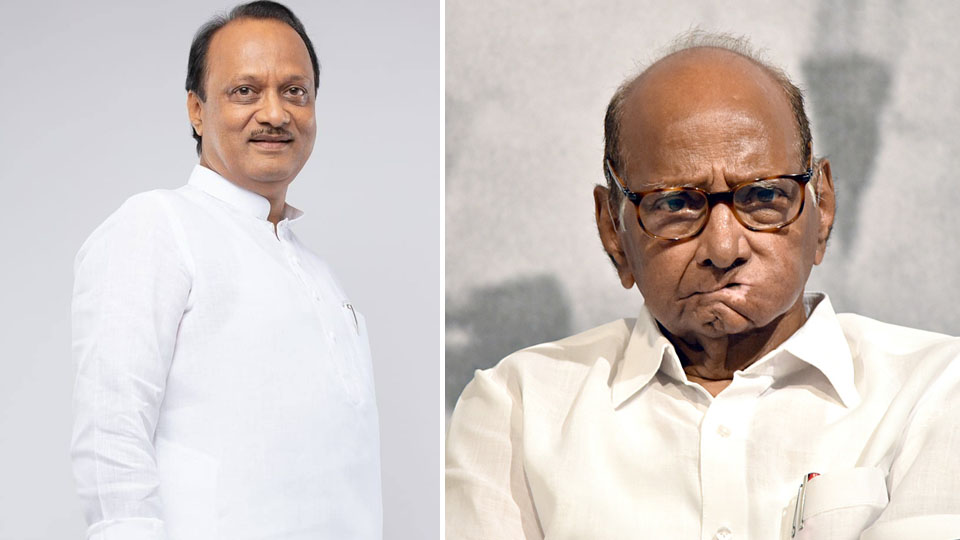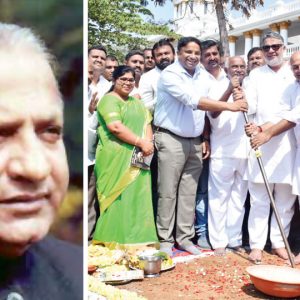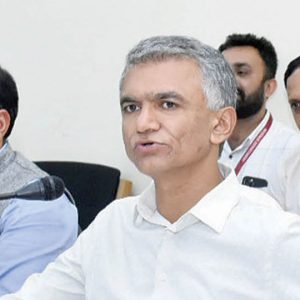
The recent political machinations in Maharashtra brought up an interesting issue — age. Is age just a number in politics? Yes. But one should know when to retire and how to retire. In all facets of life.
Nationalist Congress Party (NCP) President Sharad Pawar, at the launch of his autobiography last month, announced his retirement and said, “It is time for a new generation to guide the party.” A month later, Pawar did a U-turn; he said, “Party workers were disheartened, so they have persuaded me to change my decision.”
This upset his nephew Ajit Pawar, who thought he was the ‘new generation to guide the party.’ Ajit Pawar promptly broke away from NCP and asked his 83-year-old uncle Sharad Pawar, “You are 83. Aren’t you going to stop?” Ajit Pawar, being a politician, should have known the answer — No, Never.
In Indian politics, age is just a number. Indian politicians will ‘politick till their last breath.’ This has been the case from Morarji Desai to Sitaram Kesari to Narasimha Rao to J.H. Patel.
But what keeps our senior politicians going on and on? It’s not energizer battery, it is not Yoga and it’s definitely not a sense of service. The most effective anti-ageing agent is hunger — Hunger for Power.
The quest for power, to remain in power and playing power politics, is the secret to a long active life. This is not just in India, in any country, where there is power and politics. There are older men sticking around, be it Joe Biden, who was 78 when he was sworn-in as the President of the USA or 90-year-old Paul Biya, the President of Cameroon.
Power is intoxicating and once experienced at a political level, it is hard to let go. That is why old politicians who can’t be in power take the proxy route by making politicians out of their kith and kin.
Should politicians have a retirement age? NO. Why should they, if they can still win elections? It’s up to the people to decide who they want.
Not just politics, be it any field, if an old person can do his job well, if they can adapt to the changing work requirements, if they are of sound mind and body, there is no need for anyone to retire, unless they wish to.
In India, we have a bad habit; we quickly deem everyone old. The moment a young couple is married, they become uncle and aunty. A glimpse of grey hair will make young children dive at one’s feet and seek blessings.
Perfectly fit and active elders are often made to feel old by their children. They are made to feel old by the attitude of the people around them. We must never behave or speak in a manner that makes an older individual feel useless. Because a feeling of ‘purposeless existence’ is demoralising.
That said, be it politics or business, the key is giving opportunity for leadership without judging the outcome. Even in our daily life, we need the wisdom of the elders… but you have to draw lines. Both elders and youngsters have to set boundaries.
Freud said, “No one could be a man unless his father had died.” And Carl Jung added to it, saying, “Yes, but that death can take place symbolically.” This means that most children accept the ‘superior-inferior’ relationship with their parents, that ‘father/mother knows best.’ This is because parents are the crutch you use to navigate the world as you grow up.
Children will never truly become ‘adults’ if this crutch is not retired. This crutch that helps a child walk, if it remains in use for too long, will hold them back from running towards a life of adventure and discovery.
Freud meant that when the father is gone, you must make up your own mind without the fatherly wisdom or fear of his judgement or approval. In short, you take responsibility for your actions; you are no more a boy; you become a ‘man.’
The ‘symbolic’ part of Carl Jung’s remark is that, as you get older, you realise your father or your parents don’t have all the answers; they are as clueless as you are about many issues. This realisation is the symbolic ‘death’ of dependency, the father.
If parents accept that they don’t know any better and let their children make their choices, the roles will be reversed. Son or daughter will face adversity, take responsibility and develop a sense of accountability which will, in turn, make them the crutch that parents may need as they age.
Elders need to know when and how to let go, or else the child will have to wait for them to pass, or worse, they will leave. This will happen in politics, business and our private lives.
Sharad Pawar did not know when and how to let go. Now his nephew, who had been managing the party, has gone, the MLAs have gone, the party symbol is going and his party itself may be gone. Sometimes letting go is the best way to keep it going under new leadership.
After all, as Alfred Tennyson said, “The old order changeth, yielding place to new, And God fulfills Himself in many ways…”
e-mail: [email protected]








Recent Comments